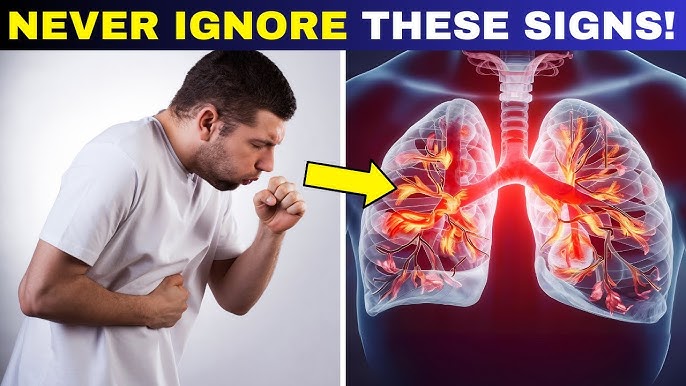Lung cancer is one of the most common and serious forms of cancer, affecting millions worldwide. It occurs when abnormal cells in the lungs grow uncontrollably, forming tumors that interfere with normal lung function. Understanding lung cancer is crucial for prevention, early detection, and effective treatment.
What Causes Lung Cancer?
Lung cancer can be triggered by a variety of factors, including:
- Smoking
- Smoking is the leading cause of lung cancer, responsible for approximately 85% of cases.
- Cigarette smoke contains carcinogens that damage lung cells.
- Exposure to Secondhand Smoke
- Regular exposure to secondhand smoke increases the risk of lung cancer, even in non-smokers.
- Environmental and Occupational Hazards
- Exposure to radon gas, asbestos, and other chemicals can lead to lung cancer.
- Air pollution also contributes to the risk.
- Genetic Predisposition
- A family history of lung cancer can increase susceptibility.
- Other Risk Factors
- Chronic lung diseases and prolonged exposure to harmful substances further elevate the risk.
Symptoms of Lung Cancer
Lung cancer symptoms may vary depending on the stage and type of cancer. Common signs include:
- Persistent coughing, often with blood.
- Shortness of breath.
- Chest pain that worsens with breathing or coughing.
- Unexplained weight loss.
- Fatigue and weakness.
- Recurring infections like pneumonia or bronchitis.
Note: Early stages of lung cancer may not present noticeable symptoms, making regular screenings vital for high-risk individuals.
Types of Lung Cancer
- Non-Small Cell Lung Cancer (NSCLC)
- The most common type, accounting for about 85% of cases.
- Includes subtypes like adenocarcinoma, squamous cell carcinoma, and large cell carcinoma.
- Small Cell Lung Cancer (SCLC)
- A less common but more aggressive type.
- Often associated with heavy smoking.
Diagnosis of Lung Cancer
Diagnosis involves:
- Imaging Tests: X-rays, CT scans, or PET scans to detect abnormalities.
- Biopsy: Removing a tissue sample to confirm the presence of cancer.
- Blood Tests: To evaluate overall health and detect tumor markers.
Treatment Options for Lung Cancer
The treatment plan depends on the cancer stage and type. Common approaches include:
- Surgery
- Removes the tumor and affected lung tissue.
- Best for early-stage lung cancer.
- Radiation Therapy
- Uses high-energy rays to target and destroy cancer cells.
- Chemotherapy
- Administers drugs to kill or inhibit cancer cells’ growth.
- Targeted Therapy
- Focuses on specific genes or proteins involved in cancer growth.
- Immunotherapy
- Enhances the immune system’s ability to fight cancer.
Preventing Lung Cancer
- Quit smoking and avoid secondhand smoke.
- Test your home for radon gas.
- Use protective equipment if exposed to hazardous substances.
- Maintain a healthy lifestyle, including regular exercise and a nutritious diet.
Conclusion
Lung cancer is a serious condition, but early detection and advancements in treatment have improved survival rates. Understanding the causes and symptoms helps in prevention, while timely medical intervention can save lives.
If you or a loved one are at risk or experience symptoms, consult a healthcare provider promptly. Early action is key to managing lung cancer effectively.




